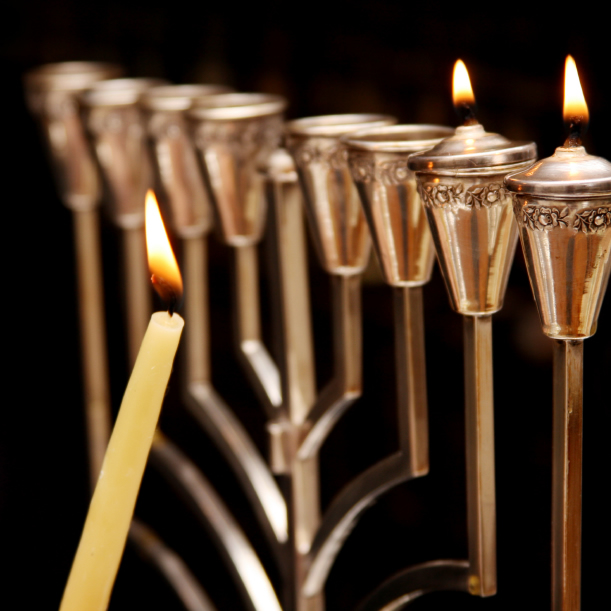The Hanukah Symbolism
By Mordecai Paldiel, professor of modern Jewish history at the Touro College Graduate School of Jewish Studies
As Jews around the world celebrate again Hanukah, the festival of lights, it is well to ponder a bit on the significance of this holiday. Over the lifespan of the Jewish people there have been renewed attempts to expel Jews from the stage of history.
These can be categorized under three existential headings, from the lower to the higher: the political—attempts to evict Jews from Israel, its paternal homeland (the Babylonians, the Romans and currently several Arab and Muslim countries); the religious—attempts to force Jews to abandon their religion (the Hellenist Seleucids and various churches during many centuries in almost all European countries); and the physical—attempts to either enslave or physically eliminate the Jews (the ancient Egyptians, Haman’s foiled attempt in ancient Persia and the Nazi regime’s Final Solution).
It is interesting to note the Jewish prayer, Al Hanisim, traditionally recited during the eight days of the Hanukah festival. It hails, not so much the glorious military feats of the Maccabean leaders, as their success in avoiding the oppressor Hellenistic rulers from forcing Jews to abandon their faith. Hence, the specific wording in the blessing that mentions the cleansing of the holy Temple in Jerusalem after it had been stained by the imposition of pagan idols, and the miracle of the temple oil that remained lit for eight days.
The dominant miracle of Hanukah was the triumph of the religion, which has sustained the Jewish people for generations —but not only the Jews. It would be well to remind both Christian and Islamic believers that they too ought to be thankful to the miracle of Hanukah, which occurred 200 years before the birth of Christianity and close to 800 years before the beginning of Islam. Had the Hellenistic rulers in the 2nd century BCE succeeded in doing away with Judaism, these two other religions, with teachings which are largely based on the Biblical heritage of the Jews, would have had no footstool to launch their own religion. Hanukah, therefore, symbolizes not only the religious pillar on which Jewish survival stands, but paradoxically, it also sustains the two other dominant monotheistic religions.
In the modern era we have, sadly, witnessed an attempt to do away with the Jewish people, this time through physical extermination of every Jew, as clearly and unashamedly defined by the Nazi Nuremberg Laws of 1935. Presently, there is an effort by an Islamic-practicing country to eliminate the Jews and to wipe Israel from the world’s map.
Even as Jews celebrate Hanukah in 2015, the same three existential threats—the political, religious and physical—persist in different forms. In that several other religions have emerged and thrived in no small part because of the miracle of Hanukah some 2200 years ago, they should consider that the survival of the Jewish nation and their traditions could be the key to their continued existence, as well.
Professor Mordecai Paldiel teaches at Touro College and Yeshiva University-Stern College. He is the former director of the Righteous Among the Nations, Yad Vashem.


